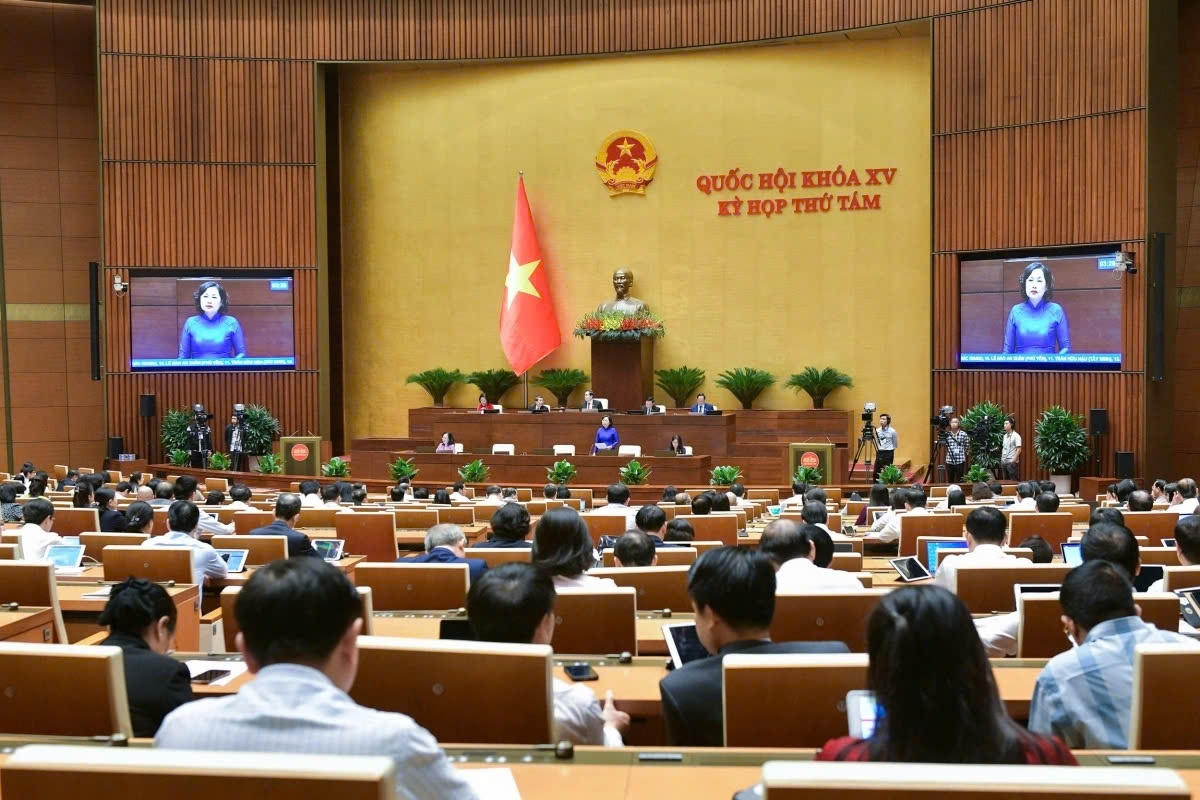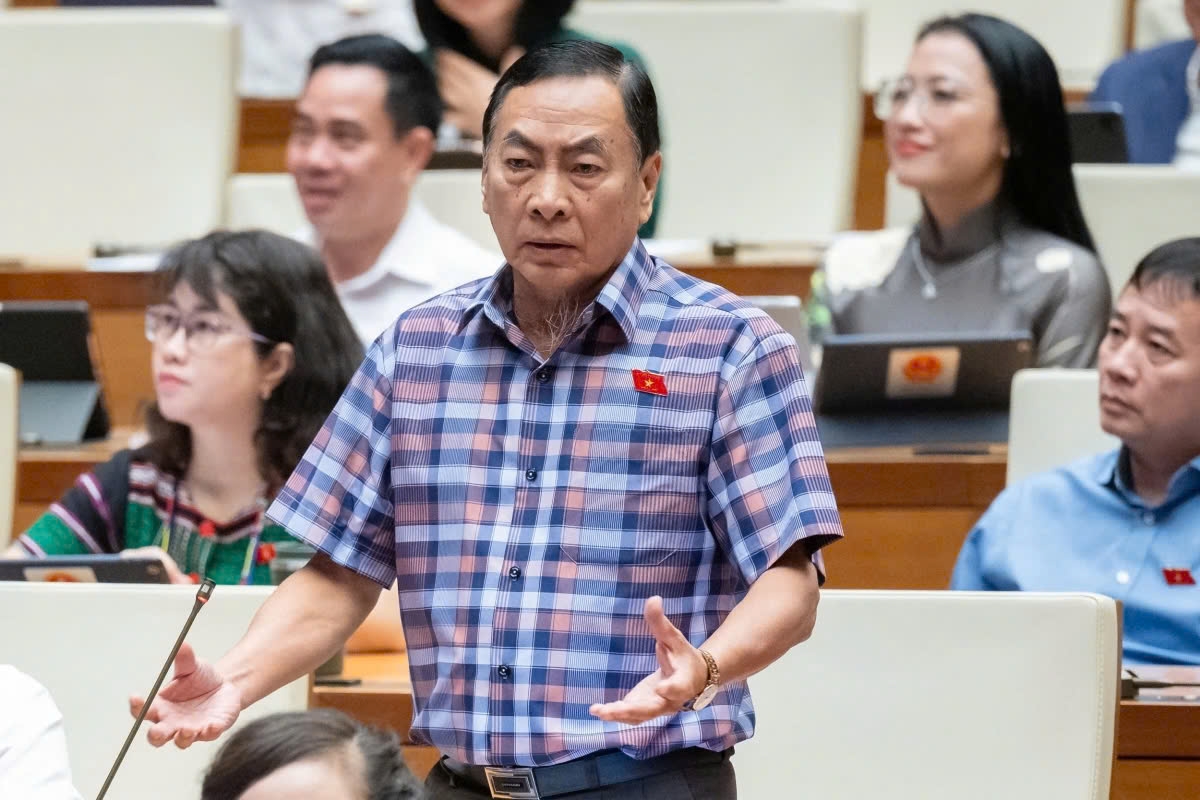Gold Exchange to be formed in Vietnam at appropriate time, says bank Governor
VOV.VN - Vietnam will set up a gold exchange at an appropriate time when it is able to meet all necessary conditions, said Nguyen Thi Hong, Governor of the State Bank of Vietnam (SBV), at the question-and-answer round of the National Assembly in Hanoi on November 11.

Governor Hong was responding to National Assembly deputies’ question about why the country has yet to establish a gold trading floor to manage the volatility of the gold market which has grabbed domestic headlines in recent times.
According to the Governor, the establishment of a gold trading floor aims to create a more transparent, safer, and stable gold market, making it easier for both individuals and businesses to buy and sell gold.
However, setting up such a gold exchange also requires investment in infrastructure. Unlike China, a major gold producer, Vietnam does not produce gold domestically, and to supply sufficient gold for trading, it must import the precious metal from international markets.
“Establishing a gold exchange requires the State Bank of Vietnam to collaborate with various ministries and conduct thorough research and impact assessments to recommend to the government at a time that aligns with the country’s conditions and context,” explained Hong.
The issue of gold management has become heated recently due to sharp fluctuations occurring in gold prices, significantly diverging from global gold prices. This has led to speculation and unregulated investment in gold, making it difficult to control the market.
Furthermore, gold is considered a popular investment channel in Vietnam, especially during periods of high inflation or economic instability. People often choose to hoard gold instead of saving in banks or investing in other channels, which in turn creates financial market instability and complicates monetary management.
Prompt interventions

Many deputies supported the State bank’s recent move to intervene in the market when domestic gold prices went wild. However, they said that the SBV has so far sold gold in order to stabilise the market without buying in.
“If people want to sell gold due to the need for cash, where can they sell it? Banks don’t buy it, and neither do the gem stones stores. On the other hand, banks only sell gold in Hanoi and Ho Chi Minh City. Why don’t they sell it nationwide to make it more convenient and easier for people who need to buy?” deputy Pham Van Hoa of Dong Thap province asked.
In response, the Governor explained that the fluctuations in the domestic gold market are part of a broader global trend. The bank has consulted with the Government and implemented measures specifically aimed at stabilising the gold market since 2013.
According to the Governor, between 2014 and 2019 the market was relatively stable, with demand for gold from the public decreasing. However, global gold prices have surged since 2021, a factor leading to an increase in domestic gold prices. Despite this rise, the State bank had not intervened until June when global gold prices reached a peak.
Prior to this intervention, gold prices were hovering around US$2,300 to US$2,400 per ounce. This significant price gap between domestic and international gold prices has prompted the Government to take a decisive action.
In such a context, the State bank has considered various options and initially intervened through nine bidding sessions, although the price gap between domestic and international gold remained high.
“To quickly narrow the gap directed by the government, we switched to directly selling gold through four state-owned commercial banks and Saigon Jewelry Company Limited,” recalled Governor Hong.
Thanks to this intervention, the price difference between domestic and international gold, which was previously VND15 - 18 million per tael, has now reduced to only VND3 - 4 million.
However, Governor Hong admitted that the market remains unpredictable and complex. As the country does not produce gold, all interventions depend on imports.
“The State bank will continue to closely monitor this situation and implement policies to stabilize the gold market,” she added.




